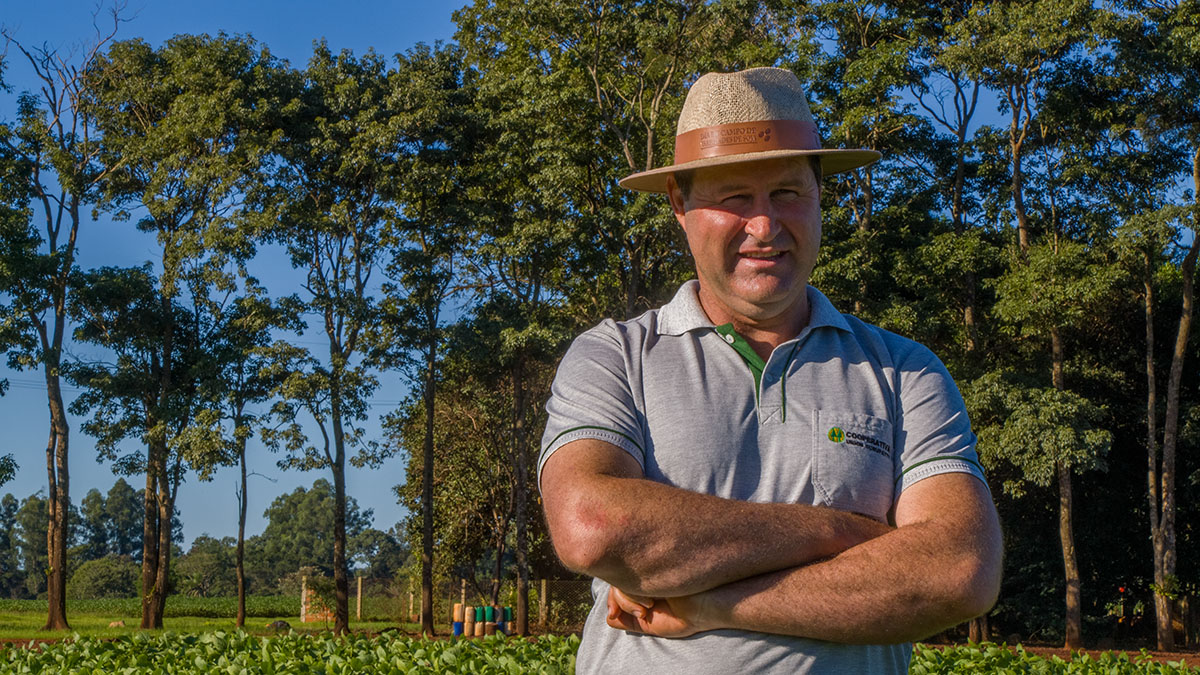A cooperative member’s perspective on the farming
Sergio Rossato and his brother first arrived in the community of San Cristóbal by raft in the 1970s. Back then there was no road; they made their way from Palmital to Naranjal. If a person got sick it was difficult to get medical care. The family began with a sawmill and moved on to other businesses in search of a better income. Sergio eventually studied business administration, and today he and his children continue to build their farming business.
Another farmer, Marcelo Wiest, says that his family has been involved in agriculture for as long as he can remember. Before they started growing crops, like soybeans, they worked with dairy and beef cattle. Recalling his youth, Marcelo notes that the biggest changes have occurred with technological advances. Today their modern farm relies on heavy machinery to grow soybeans, corn, oats and wheat on 300 hectares. He and one of his three brothers are agricultural technicians, and one of his sons wants to go into technology.
When asked what motivated him to participate in the continuous improvement project, Marcelo replies:
“No farmer wants to do things the wrong way, he believes that the way he does things is right, but projects like this clarify things. As technology advances, practices will have to improve, too.”
Marcelo Wiest, soy producer
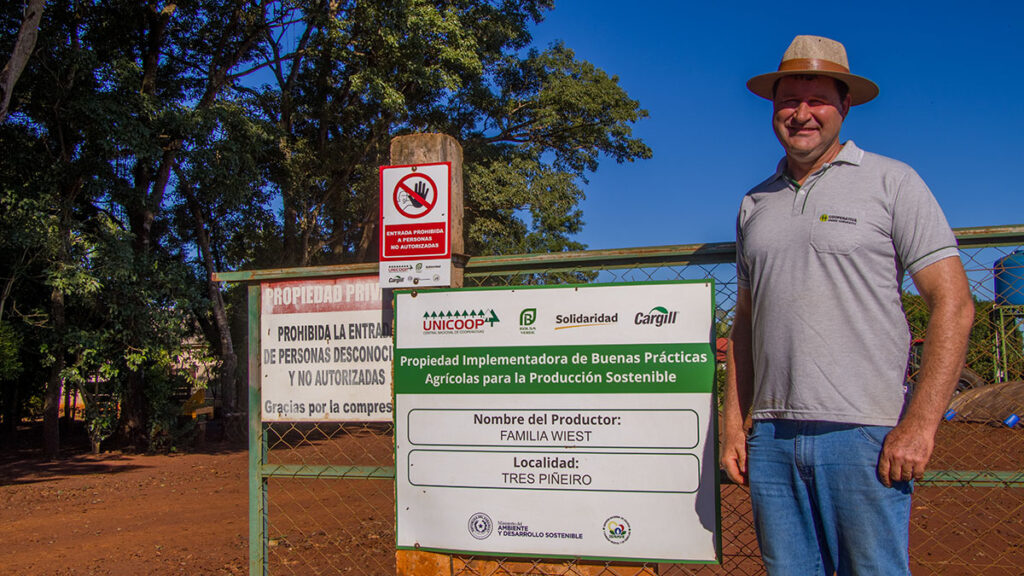
A proven methodology for continuous improvement
Solidaridad has been working in Paraguay for 10 years, and over that time has developed a methodology for continuous improvement that is adapted to the needs of producers and the market. This methodology has been implemented with UNICOOP, the Rural Association of Paraguay (ARP), ADM, COFCO and, now, Cargill.
The first step was to develop consensus with the 30 producer participants from the Pindo and Unión Curupayty cooperatives on the sustainability indicators covering the environmental, economic, social and productivity spheres. Next visits were made to each farm to evaluate their sustainability status and create individualized improvement plans with clear priorities.
Throughout implementation, technical experts from the cooperative and Solidaridad make follow-up visits to each participant to provide support and recommendations with practical solutions to challenges. In Marcelo’s case, for example, better storage of empty agrochemical containers was a key recommendation that he adopted. Keeping these in a well-ventilated space away from children, animals, and food and water sources greatly reduces the risk of poisoning.
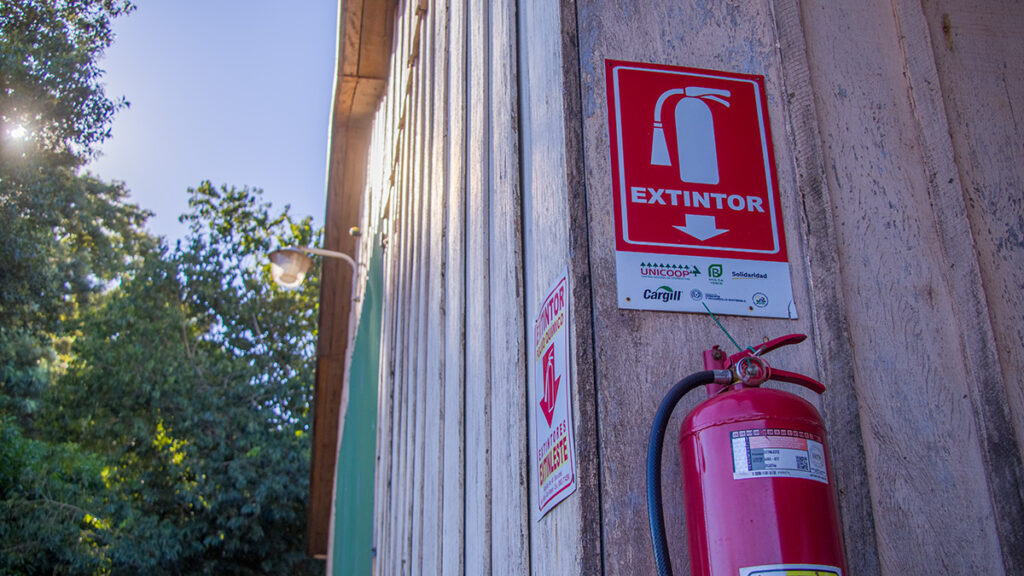
The project also contributed to a safer work environment installing updated signage with emergency numbers, required personal protective equipment, warnings about risks, and signs for empty containers and agrochemical product deposits. Field notebooks helped farmers maintain better records of agrochemical application, fuel, rainfall, and first aid kits.
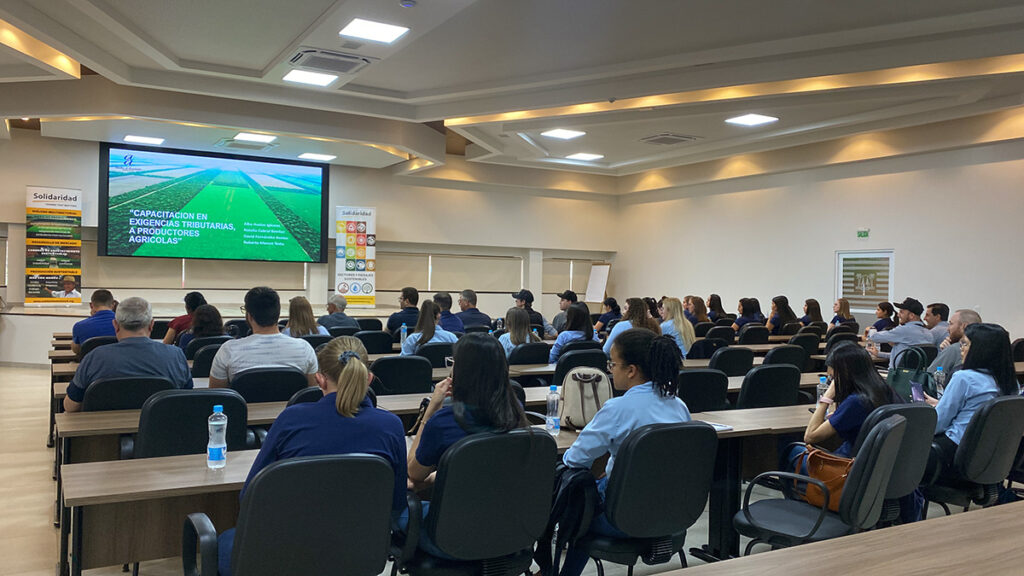
In addition to direct technical assistance, the project analyzed the results of the diagnoses to identify common knowledge and compliance gaps among the farmers trained. Based on these, a total of 13 group trainings were carried out in-person with 450 people. Attendees included producers, cooperative technicians, and farm workers who play a key role in rolling out sustainability practices and project objectives.
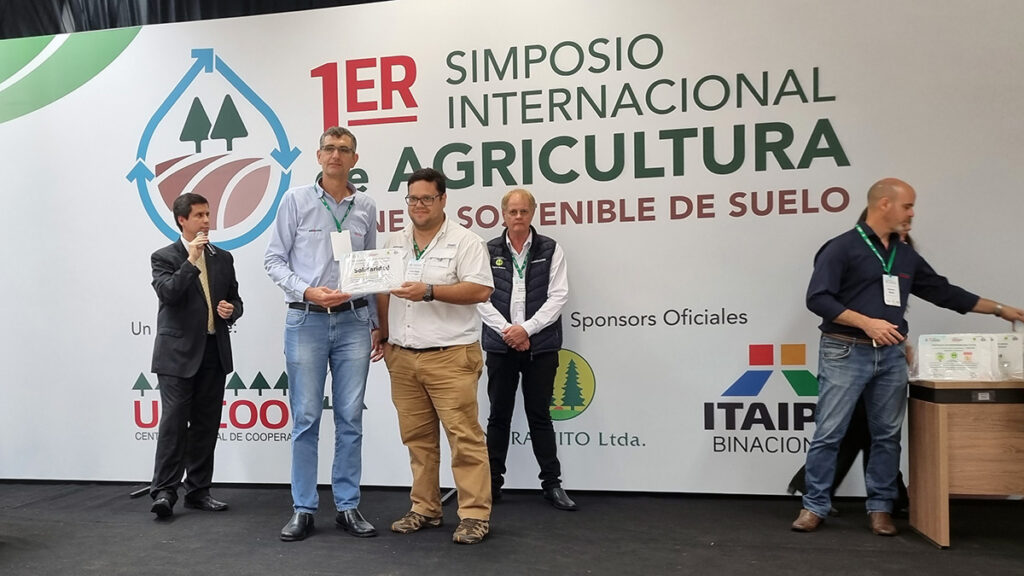
Stop, measure, make progress and continue
Over the course of the past two years, good practices were applied on 9,866 hectares, of which 7,576 hectares are dedicated to soybean production and 1,214 hectares are native forest.
Similar to the way that farmers received individual evaluations, the cooperatives were able to identify where work needs to continue by calculating the cumulative adoption of good agricultural practices among their members.
This cycle of diagnosis, adoption of good practices and evaluation, lays the groundwork for the cooperatives to continue identifying gaps and respond with new training courses as needed.
“This project is enriching because it allows us to identify the current status of producers. And it’s useful for the cooperatives to maintain alignment with criteria used by Cargill’s sustainability team,” said Mario Salas Mayeregger, Solidaridad’s program manager in Paraguay.

